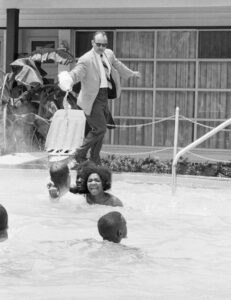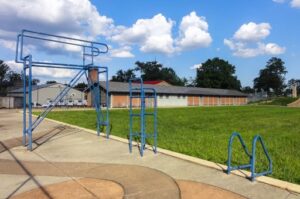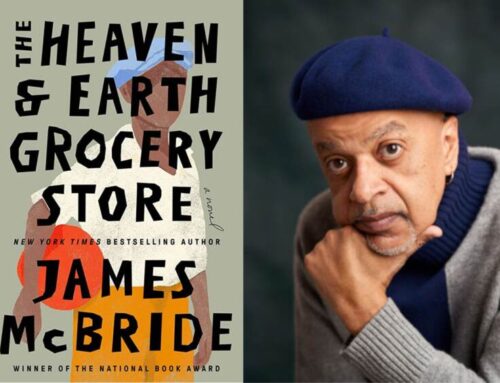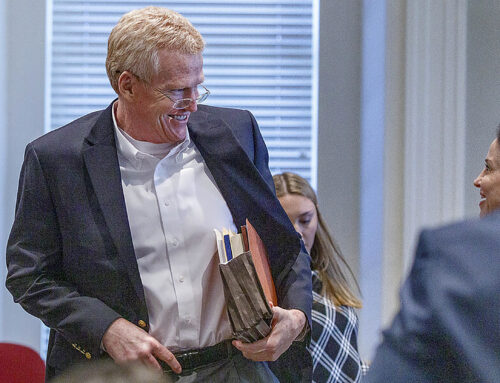The opinions and reviews expressed about this book are mine and NOT Y’ALS. – Rev. K. A. Slayton
Book Review – The Sum Of Us: What Racism Costs Everyone And How We Can Prosper Together (2021)
In spite of the recorded history of free African labor during this nations time of dealing in slavery, there continues to linger this myth that black folk are lazy and want everything for nothing. Granted not many people are saying this publicly other than a few conservative voices on mainstream conservative media outlets. During this most recent presidential election I recall a conversation with a very staunch Trump supporter who went on and on about his problem with black folk. He kept promoting this idea that all blacks wanted was something for free. I found it ironic that he failed to notice this prominent trait in his candidate. He laughed and said, “what in the heck are you talking about?” He could never imagine that the descriptor of someone wanting free stuff could be his candidate. Then I reminded him of the recorded call of the former President to the State’s Attorney in Georgia where he was essentially “asking for some free stuff.” The “stuff” in this case would be votes. Votes that he wanted, but did not feel that he’d have to work to get them.
Any local news coverage will reinforce in many ways this ongoing narrative of the poor black and brown people who are making a mess of our communities because of their unwillingness to be contributors to the economy. They are portrayed as only wanting to take from it or even worse destroy it. This is the leading narrative in city after city. It recycles the narrative that whites are not just other, but they are better. This longstanding view is what continually lands us ALL at a Zero Sum Narrative, according to McGhee.
As a black woman writing on the impacts of economic policy on our society, I must say I was extremely proud. In this book she dives directly into the mess that is US. She points out that it is the ultimate outcome of our social failures that continue to hurt us as a nation. As a result, a sense of economic equality is lost in the increased college tuition rates and exorbitant health care cost we pay. In America, you could get sick and be bankrupt. Or you could go to college and emerge with so much long debt that your financial future is dead on arrival. What is fascinating about this work is that she shows how these two necessary functions of our society were once readily available. That is, when the beneficiary was primarily white America. But once these programs and policies were extended to people of color, whites revolted at the idea that blacks, in particular, would be getting something free. And so, many of them turned their backs on a formula that had worked for them and they ran. They effectively after 1963, in response to these progressive policies, chose to align with the ideologies and politics of the conservative Republican way of thinking.
The writer goes on to argue that even to the detriment of white people in general they’d rather “drain the pool” than to have to swim with people who did not look like them. This is probably one of the most interesting  chapters of this book where she turns her focus to the closing of public swimming pools. This once very popular and beneficial “public good’ was totally disregarded at the thought of having to share with blacks seemed to overwhelming. Once again failing to realize that white children like swimming and probably did not care who else was in the water with them.
chapters of this book where she turns her focus to the closing of public swimming pools. This once very popular and beneficial “public good’ was totally disregarded at the thought of having to share with blacks seemed to overwhelming. Once again failing to realize that white children like swimming and probably did not care who else was in the water with them.
It is this lens of double standards arrived at by the majority society that author Heather McGhee exposes to a great extent in her latest book The Sum of Us: What Racism Costs Everyone And How We Can Prosper Together. In each chapter she reflects on our history in a way that shows we have not yet learned the lessons taught by the late Dr. Martin Luther King, Jr. when he said, “that we must learn to live together as brothers and sisters or perish as fools.” The yoke of racism is unrelenting in its creativity and nuances of evolving in our societal development. In this book McGhee is saying to us that if we are willing to do the math (or at least look at the problem) and we will never solve this problem, which at its core is one of division.
There is a good amount of research used to frame the arguments about our current state. Since emerging from the darkness of Jim Crow and Segregation a good number of white Americans whether liberal or conservative will argue that they desire to live in more diverse communities, but such rhetoric is completely out of line with the reality. The research shows that still white people live in communities that are 75% white. And this blind ignorance rooted in white preservation and bigotry has consistently had its greatest impact on white children, not black children. Whites are still doing everything possible to avoid having their children interact with children outside of their race. They prefer schools where they are the overwhelming majority. But again, white children are the ones being hurt by not being in diverse learning environments she argues. She points out that this was one of the primary arguments in Brown vs. Board of Education that was overlooked. And that there is a greater benefit to both groups when we are integrated.
It was on this topic that I departed from her viewpoint. As I’ve witnessed in my over half a century on the earth racism is the virus that continues to mutate and infect us all. Which may explain why I’ve not yet been convinced that we (black people) benefited from such interactions. In too many cases it has literally been detrimental to our livelihood. It has cost us in ways that still can’t quite be measured, although McGhee does a pretty good job at revealing the price we’ve all paid. Again, her arguments are rooted in research and data that is irrefutable when placed beside the lived history of our nation’s past. But for whatever the cost it’s not enough. Racism is so embedded in the fabric of our democracy that we are willing to watch the environment around us collapse rather than take preventive measures to assure a future for coming generations. White males have failed to recognize the impact that their views on race are having on our nations handling of environmental threats to our planet.
McGhee gives excellent examples of real-life stories of families in Texas and Connecticut who have paid the cost of our inability to be better. We continuously mistreat and disregard the lives of people of color in this nation. We see them as lesser value than white lives. The example of how we dispose of our trash is a great example to highlight this reality. Landfills, she says were mostly placed in black neighborhoods. Historically most of the waste and incinerators are located dumped in predominantly black neighborhoods in many of our cities. For this reason, the cost in many of these neighborhoods in children that grow up suffering from asthma and other avoidable disabilities.
In the chapter where she looks at the impact of subprime mortgage loans on the black community resonated most with me. As a victim myself of a bad refinance it was deeply disturbing to read the stories of families devastated by these banks. What will grab you even more is the understanding that the practice was to target people of color who already had good credit and were home owners. With a smile and a promise these bankers walked away leaving a defeated and broken community in their trails. The fact that they were allowed to “prey” on so many reminded me of an old African story I once heard about the white man and Christianity. It basically, said, “that when the white man came with Bible in hand to Africa, he asked us to pray and when we opened our eyes they had the land and we had the Bible.”
Ultimately, she writes that we miss out on the shared “solidarity dividends” when we fail to work together for the public good of us all. Those are the dividends that we could all share in as we seek to make our lives better. Working together we could have cleaner air, better schools, and there would a fairer disbursement of tax burdens.
The Sum Of Us reminded me of Jonathan Kozol’s book Savage Inequalities, which I read some thirty years ago. In the end I would strongly suggest this reading for all those interesting in learning more about the economic consequences of racism. In light of the domestic terrorist attacks on our US Capitol it is important that we learn these lessons soon or the later part of King’s instruction may become our reality. Additionally, I think this is an excellent book for faith leaders seeking to have a better understanding of the economic equality we seek in society.
(Note: I noticed on my daily walk at Druid Hill Park a “drained pool”)






